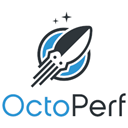Uncovering the Best LoadStorm Alternative for Your Load Testing Needs
LoadStorm is a well-known cloud-based load testing tool, designed for web and mobile applications. Its ability to record browser actions and simulate various usage scenarios makes it a go-to for many. However, for a variety of reasons – be it cost, specific feature requirements, or platform preferences – users often seek a robust LoadStorm alternative. This article will guide you through some of the top contenders in the load testing landscape, helping you find the perfect fit for your performance testing challenges.
Top LoadStorm Alternatives
Whether you're looking for open-source flexibility, advanced scripting capabilities, or a fully managed cloud service, there's a LoadStorm alternative out there for you. Let's dive into the best options available.

Apache JMeter
Apache JMeter is a powerful open-source Java application, widely recognized for its capabilities in load testing functional behavior and measuring performance. Originally developed for web application testing, it has expanded to support various protocols and technologies. As a free and open-source solution available on Mac, Windows, and Linux, JMeter offers extensive features like stress testing, load testing, MongoDB integration, and comprehensive reporting, making it a highly versatile LoadStorm alternative, especially for those who prefer an on-premise, customizable solution.

locust
Locust is an open-source load testing tool written in Python. It stands out by allowing users to define user behavior with Python code, enabling highly customized and flexible test scenarios. This makes it an excellent LoadStorm alternative for developers who are comfortable with Python and prefer code-driven testing. It's free and open-source, available on Mac, Windows, Linux, and can be self-hosted, focusing primarily on efficient load testing.

Gatling
Gatling is an open-source load testing framework built on Scala, Akka, and Netty. It's known for its high performance and developer-friendly approach to scripting. Gatling provides excellent reporting and is designed for continuous integration. As a free and open-source option for Mac, Windows, Linux, and self-hosted environments with Maven support, Gatling is a strong LoadStorm alternative for those seeking a modern, highly scalable, and scriptable load testing solution with features like randomized data feeders.

Loader.io
Loader.io is a simple, cloud-based load testing service that allows you to quickly stress test web applications and APIs with thousands of concurrent connections. Developed by the same team behind SendGrid, it's designed for ease of use and rapid deployment. Available as a freemium web platform, Loader.io is a convenient LoadStorm alternative for users who need a straightforward, cloud-based solution for load testing, stress testing, and website testing without extensive setup.

Loadrunner
LoadRunner is a commercial software testing tool used to assess system behavior and performance under load. It can simulate thousands of users concurrently, making it suitable for large-scale enterprise environments. As a comprehensive commercial solution available on Windows, LoadRunner offers robust features for load testing and stress testing, making it a powerful LoadStorm alternative for organizations requiring extensive testing capabilities and dedicated support.

OctoPerf
OctoPerf is a SaaS load testing solution built on top of JMeter, offering a user-friendly interface to stress test web and mobile applications rapidly. It simplifies the design of realistic virtual user scenarios and scales to thousands of users. As a commercial platform available on Mac, Windows, and Linux, OctoPerf is a strong LoadStorm alternative for those who appreciate the power of JMeter but prefer a managed, cloud-based service with features for both load testing and stress testing.

Low Orbit Ion Cannon
Low Orbit Ion Cannon (LOIC) is an open-source network stress testing application written in C#. While primarily known for its use in denial-of-service attacks, it can also be legitimately used for network stress testing by developers and administrators. As a free and open-source tool for Windows and Linux, LOIC offers basic stress testing capabilities and could serve as a rudimentary LoadStorm alternative for highly specific, low-level network testing scenarios.

k6 Cloud
The k6 Cloud is a commercial SaaS product designed as a companion to the open-source k6 OSS. It provides a user-friendly and convenient platform for performance and load testing, offering ease of use and scalability that complements k6's scriptable approach. As a freemium web-based solution, k6 Cloud is an excellent LoadStorm alternative for teams who want to leverage a modern, JavaScript-based scripting engine for user behavior simulation and web testing, combined with the benefits of a cloud platform for scalability and reporting.

Fast DDoS Attack Cmd
Despite its name, Fast DDoS Attack Cmd is essentially a portable ping tool based on Windows command-line (cmd), designed for casual and non-advanced Windows OS users. While it offers basic stress testing capabilities through repetitive pinging, it's a very niche and limited LoadStorm alternative, suitable only for extremely simple network connectivity tests rather than comprehensive application load testing. It is a free tool available on Windows, primarily for fast and portable cmd ping functions and basic stress testing.

blitz.io
Blitz makes load and performance testing of your website, API, iPhone, and Android, and Facebook apps a streamlined experience. It's a commercial web-based platform that simplifies the process of performance testing. Blitz.io serves as a user-friendly LoadStorm alternative for businesses and developers seeking a cloud-based solution for comprehensive load testing across various application types, without the complexities of setting up on-premise infrastructure.
Choosing the right LoadStorm alternative depends entirely on your project's specific needs, your team's technical expertise, and your budget. Whether you prioritize open-source flexibility, cloud-based convenience, or enterprise-grade features, the options listed above provide diverse capabilities to help you achieve your load testing goals. Explore each one to find the perfect fit for your performance engineering journey.